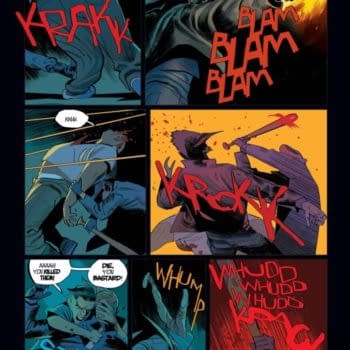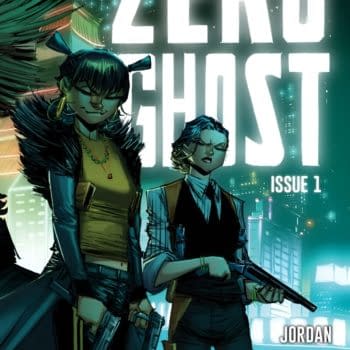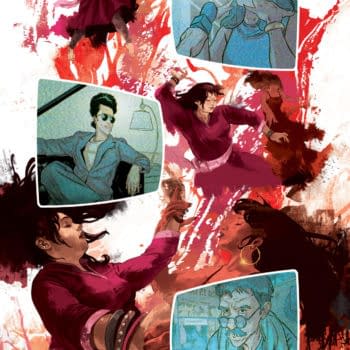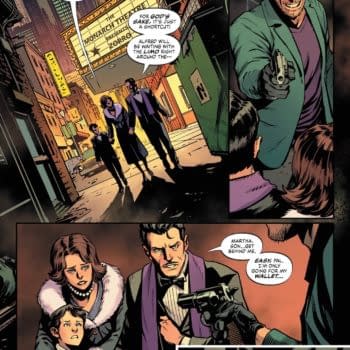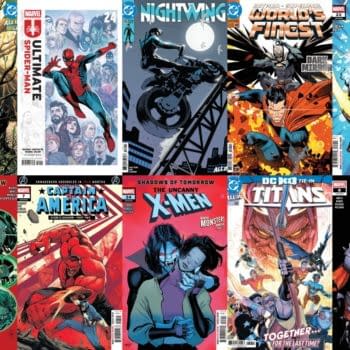Posted in: Comics | Tagged: bbc america, Comics, entertainment, idw, Jody Houser, orphan black, tatiana maslany
3 Reasons Orphan Black Makes For An Interesting Comic
I won't include this as one of my reasons, but I can actually quite clearly assure you that if you have not watched the show, you will be able to read this Orphan Black comic from IDW and find it interesting. The comic is written by the show's team of John Fawcett and Graeme Manson as well as comics writer Jody Houser, with art by Szimon Kudranski, colors by Mat Lopes and letters by Neil Uyetake, as well as having a wide range of variant covers. The pace of the comic might be a little more breathless for you if you're new to Orphan Black, but it's par for the course with a concept like this one—a story of clone siblings discovering each other's existence in the midst of conspiratorial corporations, scientists, and heavy stuff like endemic genetic illness that might strike them all down.
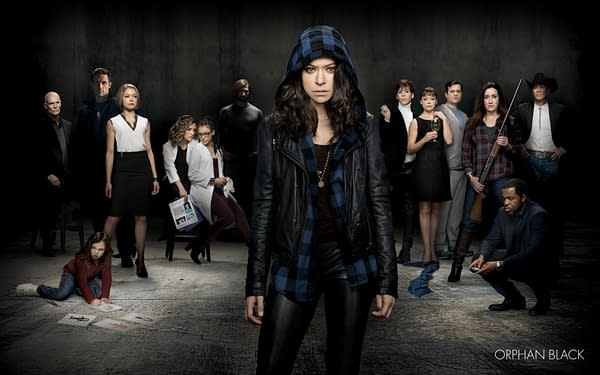
But enough about the show, which is reaching its third season April 18th. What about the comic?

How could they present a storyline that somehow related to the show without getting confusing and entering too many questions of canon? They opted for something I haven't seen very often, a character-specific ordering system. Each issue is going to tell us a story about a different "sister's" life and their motivations. Because the show thrives on mystery and tension, promising stuff we don't know yet about individual characters is an excellent choice.
2. It's also an interesting comic, based on Issue #1 for the choices it makes in narrative structure.
The first issue tells the story of main character Sarah Manning, the same person who helps introduce viewers to the plot of the show. Now, though I was hoping for some massive flashbacks to things I didn't know about Sarah, the way information was arranged was really clever. For me, as a reader, it feels like a game of hop-scotch. In fact, the grid of the page often feels like there's a right-left movement about what is "known" and what is "new" moving back and forth. You're going to see beats that followed both before and after specific scenes in the show. You're going to recognize those moments if you've seen the show, but you're going to see and hear things you didn't when watching the show. This actually cuts down on too much echo effect for those who have seen the show while still guiding newbies through the story of the first season effectively. But laced in there are also things about Sarah that we didn't learn in a consecutive way. The pieces have been put in order for us, so to speak, gathered from the show in a more cohesive way, even. And then, on top of that, we do get some of those precious flashbacks and reveals about her attitude and perception as a young child without a home. We see where that characteristic toughness comes from.

The comic doesn't hold your hand, disassemble the show, and somehow make the comic narrative "easier" for the reader than watching the show itself is. In fact, the show doesn't have many, perhaps any, now that I think about it, flashbacks or breaks in time. It functions in a very driving, linear way. There's nothing wrong with that, but the comic has already shown that it's going to fracture and move around in time to give the reader a position of privilege in the Orphan Black mythology.
We will, to some extent, get time by association. Relevant stories from the past will crop up when they relate to the present. I figure this is more possible in the comic than the show firstly, because comics handle movements in time very well with the use of cues, whereas visually in a show such transitions take up too much time on a running clock and the flow of the show can only be disrupted a certain number of times per episode without losing the reader, and also because the comic is limited to one main character per issue. That's a major point, right there, because when your theme is actually a particular character out of a large ensemble mythology, they become a unifying factor that keeps the audience/reader on track. Given that all the clones look alike, too, in the show, flashing back to childhoods too much might get a bit visually tricky! Not so here. The comic has a great deal of freedom and potential in that regard.

I'll be tuning into the new season of the show, and also to the comic where I'm sure to find more elusive clues to the world of Orphan Black.
As Editor, I'll include a short plug, too, for the interview with the creative team behind Orphan Black from IDW published in Bleeding Cool Magazine #15, which arrived Wednesday, February 25th (this week) in shops, and has a rocking Orphan Black cover as well for our Female Heroes Issue of the magazine!











